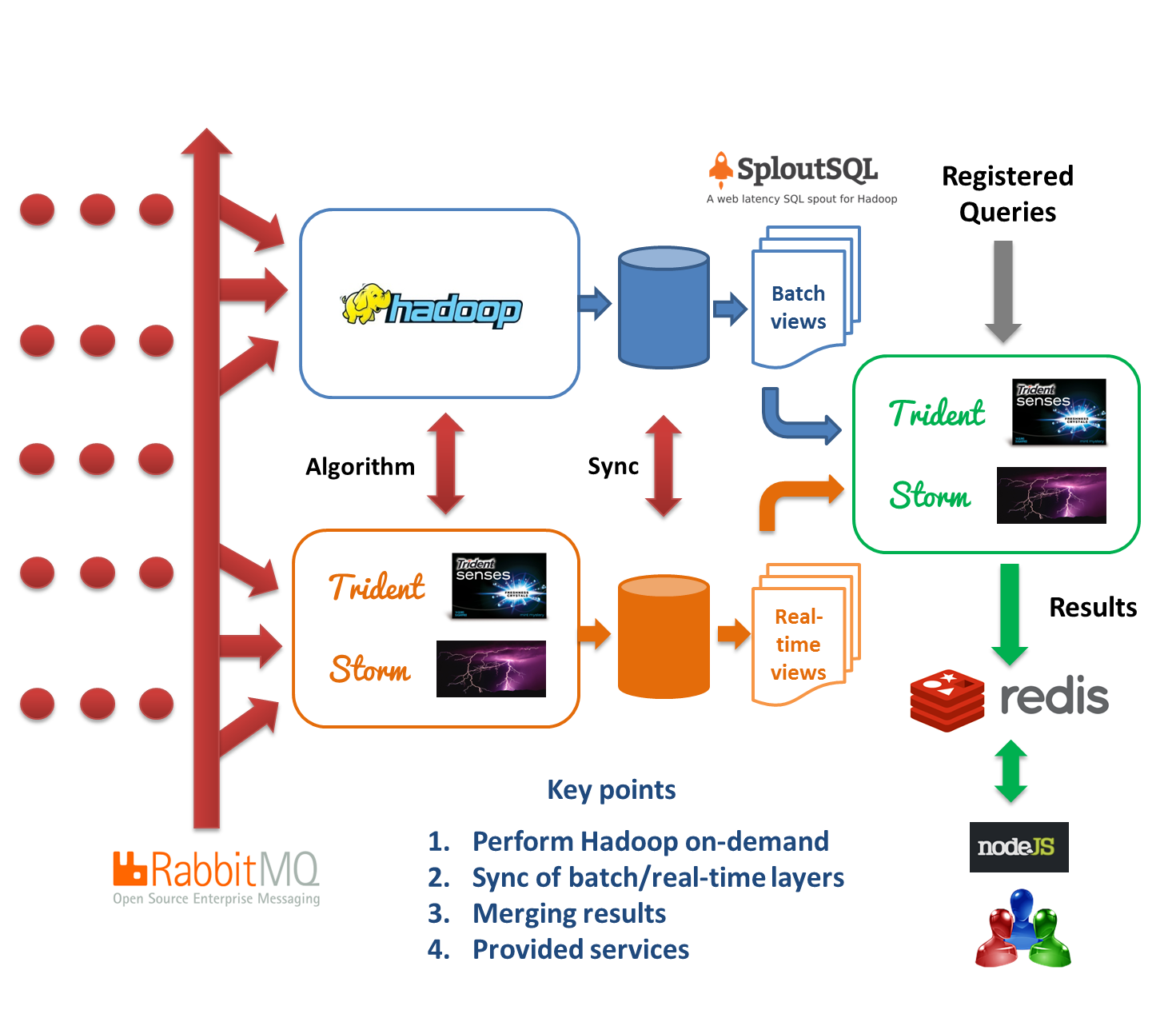Hi all,
This week has elapsed very fast and I have made a lot of things that I leave bellow:
Reading
My main concern in the research is how can I address the automatic computation of a lot of sensors (applications, cloud management platforms, etc.), i.e. how can I monitorize resources? and which the variables to be taken into account are. In this sense I have read some papers from my colleagues at SEERC and other authors:
The main outcome of this work has been an small presentation about how to process Big Data applying the
Lambda architecture, more specifically adding semantic to this process. It is a just a proposal and first thinkings but I will do my best to debug and design the whole process.
Writing
I have made some progresses in the article about the experience publishing the “Webindex” as Linked Data and I have also planned the potential articles for this year and their contents.
Coding
Sometimes you feel very motivated to test new tools and frameworks and I am now in this phase:
Teaching
I have finished the evaluation of Health Information Systems in Nursing and Physiotherapy course at the University of Oviedo. They have developed very good works applying Web 2.0 concepts for building mashups in the Health sector, I am very proud of all students.
Administrative Stuff
Here it is where I spent most of the time (and thanks to my colleague Fotis) but I finally got (almost) all the required documentation:
I believe something is missing but, anyway, it is just a summary…

